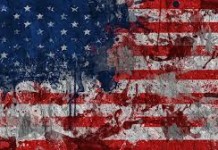The structural inequities and systemic biases present in higher education profoundly affect learners’ sense of belonging, which in turn influences their academic and social experiences. Research consistently shows that students from historically minoritized backgrounds, including students of color, low-income students, and first-generation college students, often feel less connected to their institutions. This lack of belonging can have far-reaching consequences, impacting learners’ engagement with courses and materials, their sense of connection with peers and community, and their overall well-being and acceptance within the campus culture.
As institutions strive to create more inclusive environments, it is essential to understand the multifaceted ways in which belonging influences student experiences and outcomes. When learners perceive themselves as outsiders, their motivation and participation in academic activities suffer. A recent study found that students who do not feel a sense of belonging are less likely to engage in classroom discussions or participate in group projects, leading to a diminished learning experience.[1] This disengagement is particularly pronounced among learners from underrepresented groups, who may already feel alienated due to cultural and institutional biases. Such environments fail to support these learners, exacerbating feelings of isolation and disengagement. Consequently, these students are often left to navigate academic challenges without the support structures necessary for success, further entrenching existing inequities. Continue reading “The Crisis of Belonging”
When learners perceive themselves as outsiders, their motivation and participation in academic activities suffer. A recent study found that students who do not feel a sense of belonging are less likely to engage in classroom discussions or participate in group projects, leading to a diminished learning experience.[1] This disengagement is particularly pronounced among learners from underrepresented groups, who may already feel alienated due to cultural and institutional biases. Such environments fail to support these learners, exacerbating feelings of isolation and disengagement. Consequently, these students are often left to navigate academic challenges without the support structures necessary for success, further entrenching existing inequities. Continue reading “The Crisis of Belonging”
